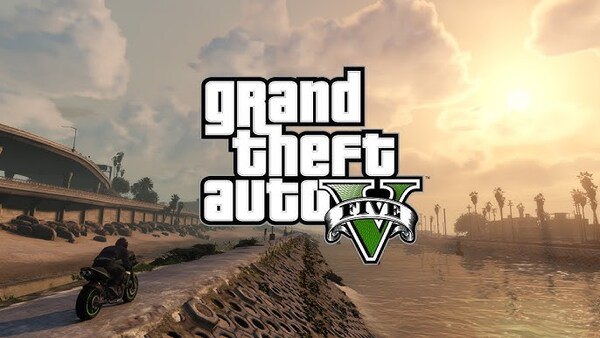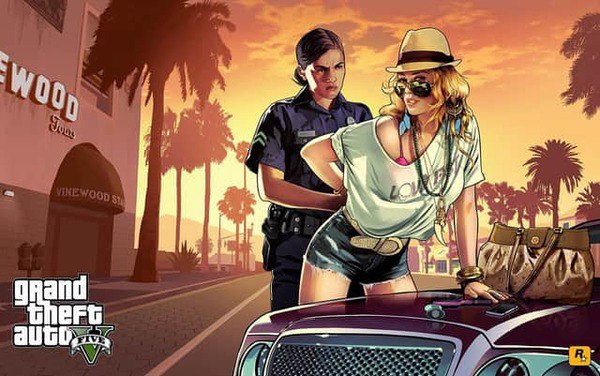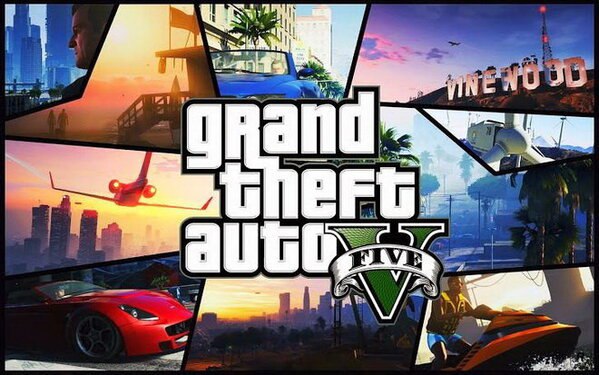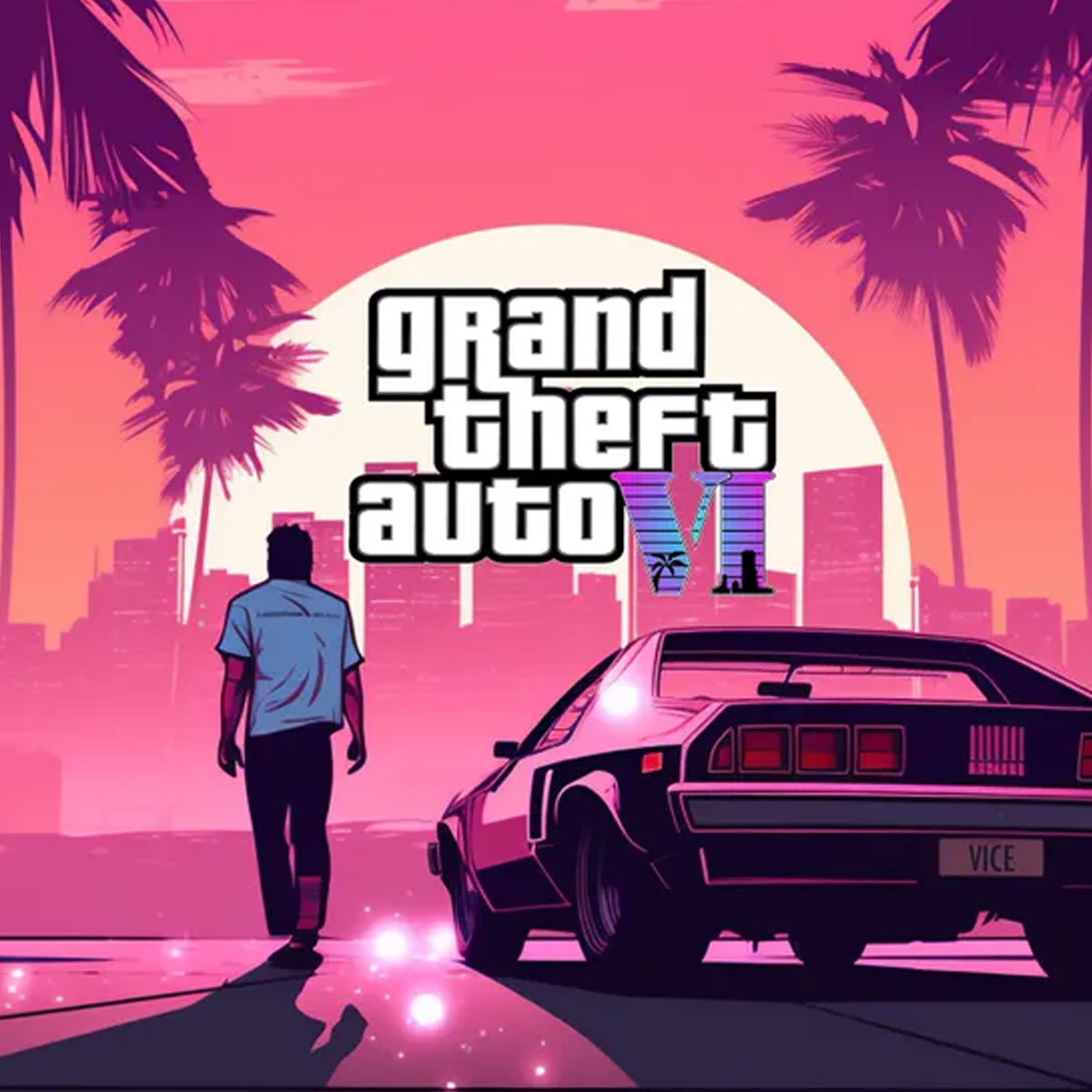Advertisement
Popular Now
Grand Theft Auto V (GTA V) is often celebrated for its immersive open-world experience, vibrant characters, and engaging narrative. However, beneath the surface of its entertainment lies a profound exploration of morality, particularly regarding crime and its repercussions. This article delves into how GTA V presents the moral dilemmas associated with criminality through its characters, missions, and the intricate choices players face. By examining these elements, we can gain a deeper understanding of the game's commentary on ethics and the human condition.
 GTA V is set in the sprawling, fictional city of Los Santos, which mirrors modern-day Los Angeles. The city is not just a backdrop but a character in its own right, reflecting the complexities of contemporary American society.
GTA V is set in the sprawling, fictional city of Los Santos, which mirrors modern-day Los Angeles. The city is not just a backdrop but a character in its own right, reflecting the complexities of contemporary American society.
 The game's rich world invites players to engage with its inhabitants, each representing different moral viewpoints.
The game's rich world invites players to engage with its inhabitants, each representing different moral viewpoints.
 Michael's character challenges the notion that wealth equates to happiness. His luxurious lifestyle masks a deep internal conflict.
Michael's character challenges the notion that wealth equates to happiness. His luxurious lifestyle masks a deep internal conflict.
 Trevor is the most morally ambiguous character, embodying chaos and violence. His unpredictable nature forces players to confront the darker aspects of human behavior.
Trevor is the most morally ambiguous character, embodying chaos and violence. His unpredictable nature forces players to confront the darker aspects of human behavior.
 The outcomes of heists underscore the moral consequences of players’ choices, illustrating how crime impacts both the characters and the world around them.
The outcomes of heists underscore the moral consequences of players’ choices, illustrating how crime impacts both the characters and the world around them.
The Setting: A Microcosm of Society
 GTA V is set in the sprawling, fictional city of Los Santos, which mirrors modern-day Los Angeles. The city is not just a backdrop but a character in its own right, reflecting the complexities of contemporary American society.
GTA V is set in the sprawling, fictional city of Los Santos, which mirrors modern-day Los Angeles. The city is not just a backdrop but a character in its own right, reflecting the complexities of contemporary American society.
Urban Division and Social Commentary
Los Santos is characterized by its stark socioeconomic divides, highlighting issues of wealth disparity, crime, and moral decay.- Wealth and Poverty: The game juxtaposes affluent neighborhoods, such as Vinewood Hills, with impoverished areas like South Los Santos. This contrast serves to illustrate the systemic inequalities that influence criminal behavior.
- Cultural Landscape: The diverse population adds depth to the narrative, allowing for an exploration of various moral perspectives shaped by environment and circumstance.
Immersion in a Complex Society
 The game's rich world invites players to engage with its inhabitants, each representing different moral viewpoints.
The game's rich world invites players to engage with its inhabitants, each representing different moral viewpoints.
- Character Interactions: Engaging with various NPCs reveals the multifaceted nature of morality in Los Santos. Players encounter individuals driven by desperation, ambition, or corruption, prompting reflection on their own ethical beliefs.
- Realism and Consequences: The game’s realistic portrayal of crime invites players to consider the implications of their actions, blurring the lines between right and wrong.
The Protagonists: Navigating Moral Ambiguity
The three main characters—Michael De Santa, Franklin Clinton, and Trevor Philips—embody distinct moral philosophies, each navigating the complexities of crime in their own way.Michael De Santa: The Disillusioned Dreamer
Michael represents the paradox of the American Dream. Despite his wealth and status, he grapples with a profound sense of dissatisfaction and emptiness.The Burden of Wealth
 Michael's character challenges the notion that wealth equates to happiness. His luxurious lifestyle masks a deep internal conflict.
Michael's character challenges the notion that wealth equates to happiness. His luxurious lifestyle masks a deep internal conflict.
- Family Dynamics: His strained relationships with his wife and children reflect the personal costs of his criminal past. Michael’s attempts to achieve a sense of normalcy often clash with the chaos of his life.
- Redemption Arc: Michael's journey is marked by a desire for redemption, as he attempts to reconcile his past with his present. This internal struggle highlights the moral complexities of seeking forgiveness while still engaging in crime.
Franklin Clinton: The Reluctant Participant
Franklin serves as a representation of ambition amidst adversity. His character is shaped by his environment, reflecting the temptations of crime as a means of upward mobility.The Struggle for Identity
Franklin's path from petty crime to major heists illustrates the allure of criminality in a world rife with obstacles.- Moral Conflict: He often finds himself torn between the mentorship of Michael and Trevor, each embodying different ethical outlooks. This conflict emphasizes the pressures faced by individuals in crime-ridden environments.
- Ambition vs. Morality: Franklin's choices often revolve around the tension between his aspirations and the ethical implications of his actions, prompting players to reflect on their own values.
Trevor Philips: The Anarchist
 Trevor is the most morally ambiguous character, embodying chaos and violence. His unpredictable nature forces players to confront the darker aspects of human behavior.
Trevor is the most morally ambiguous character, embodying chaos and violence. His unpredictable nature forces players to confront the darker aspects of human behavior.
The Nature of Evil
Trevor's character raises questions about the roots of violence and the moral implications of unrestrained chaos.- Trauma and Instability: Trevor’s backstory reveals a history of trauma, complicating his violent tendencies. This psychological depth prompts players to consider the factors that shape an individual's morality.
- Freedom vs. Consequence: Trevor’s anarchic behavior serves as a critique of societal norms, challenging players to grapple with the idea of moral freedom and its consequences.
The Heists: Ethical Decision-Making
Heists form the backbone of GTA V’s gameplay and narrative, providing a framework for exploring moral choices in the context of criminality.Planning and Execution
Each heist presents players with decisions that resonate with ethical implications, forcing them to weigh their options carefully.- Approach Choices: Players can opt for stealthy or aggressive tactics, each affecting not only the outcome of the heist but also the moral weight of their actions.
- Crew Selection: The choice of crew members adds another layer of complexity, as players must consider trust, loyalty, and the ethical ramifications of their decisions.
Consequences of Actions
 The outcomes of heists underscore the moral consequences of players’ choices, illustrating how crime impacts both the characters and the world around them.
The outcomes of heists underscore the moral consequences of players’ choices, illustrating how crime impacts both the characters and the world around them.
- Reactions of Allies and Enemies: Success or failure can lead to significant shifts in character relationships, emphasizing the interconnectedness of morality and social dynamics.
- Law Enforcement Response: The game’s depiction of law enforcement as a formidable opponent adds tension, prompting players to consider the ethical implications of their criminal actions.
Law Enforcement: A Critical Lens
The portrayal of law enforcement in GTA V serves as both a critique and a reflection of societal attitudes toward authority and justice.Satirical Commentary
GTA V uses humor and satire to highlight the absurdities of law enforcement, prompting players to question the legitimacy of authority.- Corruption and Inefficiency: The game presents a caricature of police, depicting them as often incompetent or corrupt. This portrayal invites players to reflect on real-world issues of accountability and ethics in policing.
- Player Agency vs. State Power: Players’ interactions with law enforcement can lead to moral reckoning, as they must navigate the consequences of their actions within a flawed system.
The Consequences of Crime
The game challenges players to consider the broader implications of criminal behavior on society and individuals.- Impact on Communities: The effects of crime are not limited to the protagonists; they ripple throughout Los Santos, affecting innocent bystanders and entire neighborhoods.
- Moral Responsibility: Players are forced to confront their moral responsibilities, considering how their actions contribute to the cycle of crime and punishment.
Humor and Satire: Balancing Serious Themes
GTA V is renowned for its dark humor, which often serves to mitigate the seriousness of its moral themes while simultaneously creating a unique tension within the gameplay experience.Comedy as a Coping Mechanism
The game’s humor provides a lens through which players can engage with serious issues, allowing for a more nuanced exploration of morality.- Absurdity in Violence: The comedic portrayal of violence can create a dissonance that encourages players to reflect on the gravity of their actions while still enjoying the game.
- Caricatures and Stereotypes: The exaggerated characters and scenarios serve as a critique of societal norms, prompting players to laugh while also engaging with deeper moral questions.
Ethical Implications of Humor
While humor can disarm serious topics, it also raises questions about moral engagement and desensitization.- Desensitization to Violence: The comedic elements may lead to a desensitization to the consequences of violence, complicating players’ understanding of morality.
- Reflection on Ethics: The use of satire invites players to critically analyze their values, challenging them to differentiate between humor and moral responsibility.
The Role of Choice: Agency and Morality
GTA V emphasizes the significance of player choices, illustrating that morality is not binary but a spectrum influenced by context and consequences.Narrative Branching
The game features multiple endings and branching narratives that respond to players’ decisions, reinforcing the impact of moral choice on the storyline.- Diverse Endings: The varied endings serve as reflections of players’ moral decisions, illustrating how each choice leads to different outcomes and consequences.
- Character Fates: The fates of the protagonists can change based on players’ actions, adding depth to the moral exploration and encouraging thoughtful engagement.
Interpersonal Relationships
The relationships between characters are profoundly affected by players' choices, showcasing the interconnectedness of morality and social dynamics.- Trust and Betrayal: Choices made during gameplay can lead to trust or betrayal, impacting character arcs and player experiences.
- Emotional Consequences: The emotional fallout from decisions underscores that morality extends beyond individual actions to their effects on others, highlighting the importance of empathy.
Broader Implications of Morality in GTA V
GTA V’s exploration of morality transcends its narrative, prompting players to examine their own ethical frameworks in relation to real-world issues.Real-World Ethics
As players engage with the moral dilemmas presented in the game, they are encouraged to reflect on their beliefs about crime, justice, and morality.- Comparative Morality: Players may find parallels between their in-game choices and real-world ethical dilemmas, prompting critical thinking about their moral beliefs.
- Influence of Environment: The game’s setting emphasizes how context shapes moral choices, encouraging players to consider their own environments and experiences.
The Role of Agency
GTA V empowers players with agency, emphasizing that morality is not a fixed concept but rather a dynamic interplay of choices and consequences.- Empathy Through Choice: Engaging with the game’s moral dilemmas fosters empathy, prompting players to consider the human element behind each decision.
- Reflection on Consequences: The interconnected nature of choices encourages players to think critically about their moral frameworks in both the game and real life.



















